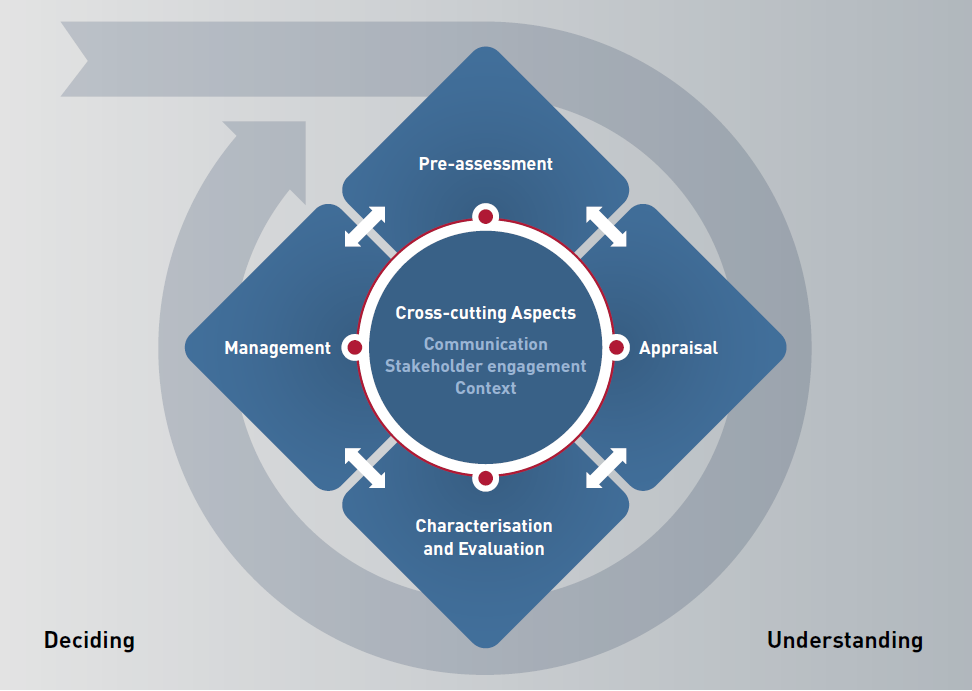IRGC has developed a comprehensive framework for risk governance.
The IRGC Framework provides guidance for early identification and handling of risks, involving multiple stakeholders. It recommends an inclusive approach to frame, assess, evaluate, manage and communicate important risk issues, often marked by complexity, uncertainty and ambiguity. The Framework is generic and adaptable. It can be tailored to various risks and organisations. The Framework comprises four interlinked elements, and three cross-cutting aspects:
1. Pre-assessment – Identification and framing
- Framing the risk, engaging in early warning and preparations for handling a risk
- Identifying and involving relevant actors and stakeholder groups, so as to capture the various perspectives on a risk, its associated opportunities and potential strategies for addressing it.
2. Appraisal (assessment) – Assessing the technical and perceived causes and consequences of the risk
- Developing and synthesising the knowledge base for a decision on whether or not a risk should or may be taken and/or managed. Assessing technical impacts and consequences of a risk in terms of plausibility and severity, but also non-technical aspects regarding stakeholders concerns and opinions
- Identifying and selecting what options may be available for preventing, mitigating, adapting to or sharing a risk.
3. Characterisation and evaluation – Making a judgment about the risk and the need to manage it
- Comparing the outcome of risk appraisal (risk and concern assessment) with specific criteria determined by decision-makers
- Determining the significance and acceptability of a risk
- Preparing decisions.
4. Management – Deciding on and implementing risk management options.
- Designing and implementing the actions and remedies necessary to avoid, reduce (prevent, adapt, mitigate), transfer or take a risk
- Managing tradeoffs with other risks and opportunities.
5. Cross-cutting aspects – Communicating, engaging with stakeholders, considering the context.
- Organising risk communication: as open, transparent and inclusive as possible
- Engaging stakeholders to participate in a risk assessment and to contribute to risk management
- Accounting fully for the societal context of both a risk and the decision that will be taken.
Downloads
- The “original“: Risk Governance – Towards an Integrative Approach (White paper, 2005) (pdf)
- With case studies: Global Risk Governance – Concept and Practice Using the IRGC Framework – Edited by Ortwin Renn and Katherine Walker, IRGC Bookseries 1 published by Springer (2008)
- A summary: Introduction to the IRGC Risk Governance Framework (2017) (pdf)
- List of Other IRGC publications about core concepts and instruments for risk governance

